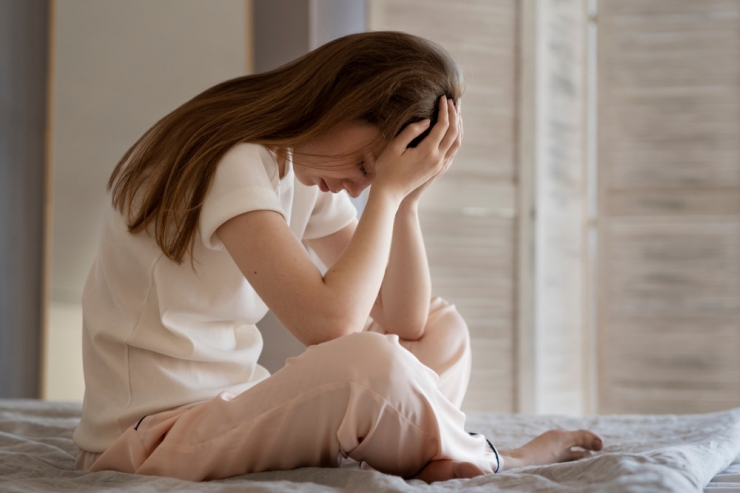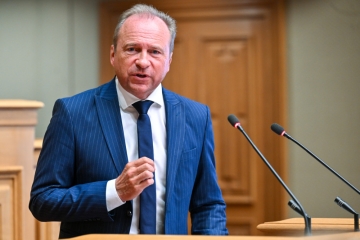Schülerartikel / Postpartum depression

Postpartum depression is different from the so-called „baby blues“
Postpartum depression is not a passing disease as it takes time to treat and requires the greatest possible care. This illness unfortunately affects between 20 and 35 per cent of women and can be very serious because it has to be cured.
This disease prevents the mother from living life after birth as it should be because it does not let her enjoy the moment that for many women is the happiest and most unforgettable, because a part of you is born, a human being with a bright future ahead, and of course it also upsets the mother and possibly the baby too. The aim is to encourage women who are not psychologically well after childbirth to seek help and that afterwards everything will pass and that they are not alone in this situation.
Signs and symptoms of postpartum depression:
Symptoms usually begin within the first three months after birth. The symptoms of postpartum depression may be irritability and easy crying, prolonged sadness (lasting more than two weeks), lack of energy, inability to carry out everyday tasks or lack of interest in the baby or exaggerated anxiety about their state of health. More examples can also be low self-esteem and loss of confidence, feelings of guilt, shame or failure, difficulty concentrating, paying attention and remembering, changes in appetite and sleep and feelings of death or suicide.
Risk factors for postpartum depression:
Risk factors for postpartum depression may be personal or family history of depression, depression during pregnancy, domestic violence, anxiety during pregnancy (even more important than depression), pregnancy or childbirth complications or being mother of pre-term babies or twins. Stress, previous traumatic birth, previous pregnancy loss, lack of family support, bipolar disorder, poor marital relationship and unwanted pregnancy may be further examples for postpartum depression.
Treatment:
The treatment consists of affectionate work between mother, baby and family. The objective is to reduce the overburdening of the woman and depending on the case the psychiatrist can prescribe treatment with hormone therapy.
Tips to prevent postpartum depression:
Some tips to prevent postpartum depression are: rest, don’t try to be perfect, don’t listen to criticism, exercise, walk in the open air, divide housework from baby care and also company of loved ones.
Distinguishing depression from sadness after giving birth:
It is not always depression, but often just a feeling of sadness. This is called the „baby blues“. The „baby blues“ is a temporary feeling of helplessness. It is caused by hormonal changes due to the birth of the baby, but it is not a serious illness or condition. It does not need treatment and tends to pass in a few days.
Fact:
Around 4 per cent of men also suffer from postpartum depression, according to a US study published in 2010 in the Archives of Pediatric & Adolescent Medicine.
Sources:
– www.cuf.pt/mais-saude/depressao-pos-parto-como-diagnosticar-e-ultrapassar
– naitreetgrandir.com/fr/etape/0_12_mois/viefamille/fiche.aspx?doc=ik-naitre-grandir-maman-depression-postpartum-babyblue
– www.hospitalanchieta.com.br/depressao-pos-parto-conheca-as-suas-principais-causas-sintomas-e-como-se-cuidar/
- EU-Parlament gibt grünes Licht für von der Leyens Kommission - 27. November 2024.
- Eine Person lebensgefährlich verletzt – Experten ermitteln, Straße bleibt noch gesperrt - 27. November 2024.
- Sandy Artuso macht mit „Queer Little Lies“ Esch zum queeren Kultur-Hotspot - 26. November 2024.



 Headlines
Headlines




 Umfrage
Umfrage
 Facebook
Facebook  Twitter
Twitter  Instagram
Instagram  LinkedIn
LinkedIn
Sie müssen angemeldet sein um kommentieren zu können.
Melden sie sich an
Registrieren Sie sich kostenlos